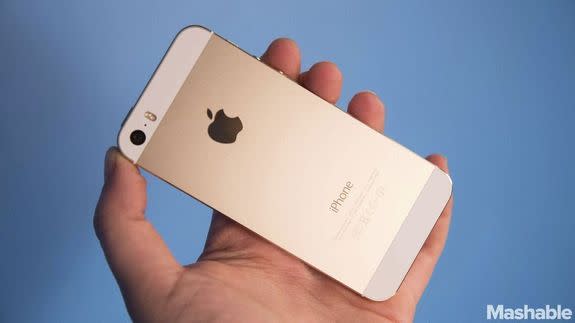Apple's best hope in India is to sell refurbished iPhones, and it's not looking good

Apple's iPhone sales might be slowing down in the rest of the world, but they grew by a phenomenal 56% in India last quarter, one of the few bright spots in Apple's otherwise "dismal" earnings. No wonder then Apple has big plans for the world's fastest-growing smartphone market, that includes setting up its stores and selling refurbished iPhones (or is that iPhone devices?) in the country. But it is likely going to be a steep uphill climb.
See also: A first look at Liam: Apple's massive robot that takes apart old iPhones
While Apple might have received the nod from the Indian government to open its retail stores in India, its plans to sell refurbished iPhones are encountering serious resistance from the Mobile and Communications Council, a newly formed industry body comprising smartphone rivals Samsung, Micromax and Intex, among others. Apple has applied to the government of India to let it import what it calls "certified pre-owned" iPhones.
A Bloomberg report claims the Indian government rejected Apple's applications. However, sources in the know tell Mashable that no decision has been communicated yet, and the talks are still on.
Why does Apple want to sell refurbished iPhones in India?
India is the world's second largest and fastest-growing smartphone market — at a time when all mature markets including China have slowed down. However, Apple's market share languishes in low single digits. The reason: Apple's iPhones cost a (relative) fortune, priced much higher in India than their cost in the U.S. and most other markets. The majority of smartphones sold in India cost less than $200, but Apple's most affordable iPhone costs well over $300.
Apple wants to change that. The company wants to get the iPhone within the reach of more users. “We’ve been working in India now for a couple of years or more, but we’ve been working with great energy over the last 18 months or so, and I’m encouraged by the results,” Cook said during last week's earnings call.
One of the ways to do that is to sell what Apple calls are certified pre-owned iPhones or what's commonly known as refurbished iPhones. Apple's plan is to initially import these refurbished iPhones into India and eventually work with manufacturing partners to refurbish the devices in India itself.
Are refurbished iPhones bad?
Depends on whom you ask. Last year, the environment ministry had rejected a similar proposal suggesting the plan would lead to increased e-waste in the country. The ministry believes that refurbished iPhones would typically be closer to the end of their life cycle and hit the dump yard much earlier than a brand new unit.
Apple's rivals claim this plan would hurt the government's Make in India initiative, which encourages local assembling of goods, including smartphones and other electronics. They reckon India would become a dumping ground if Apple was allowed to import refurbished iPhones.
Ask Apple and they'd say there's not much difference between a brand new unit and a refurbished one, which is certified as pre-owned to fulfill its legal obligations. According to the company, every pre-owned iPhone unit goes back to the OEM and components that are perfect to be reused are kept while others are replaced. The finished unit goes through the same quality checks as a new unit. It even gets new serial and IMEI number.
In other words, a certified refurbished iPhone should have a similar lifespan as a new unit. Apple is able to recycle some of the components, which brings the pricing down and makes the iPhone more affordable. Apple has often argued that its certified pre-owned iPhone would have a longer lifespan than a similarly priced smartphone from most brands.
What happens now?
One of the things that could sway the government's decision in Apple's favor would be if the company seriously commits to its promise of refurbishing iPhones in India. Cook met with Indian Prime Minister Narendra Modi last year to discuss manufacturing in India specifically. Apple's main manufacturing partner, Foxconn, already has some presence in the country.
However, it still appears unlikely Apple would be able to easily convince the Indian government to approve its refurbishing plans, at least in their current form. Its rivals will try everything possible to thwart Apple's attempts, because if Apple is successful it will significantly impact their market share — especially in the coveted midrange-to-high end.
If that were to happen, Apple's iPhone story in India would begin to follow its narrative in the West — as the only serious player besides Android in the smartphone market, and with a lock on most of the profits.
